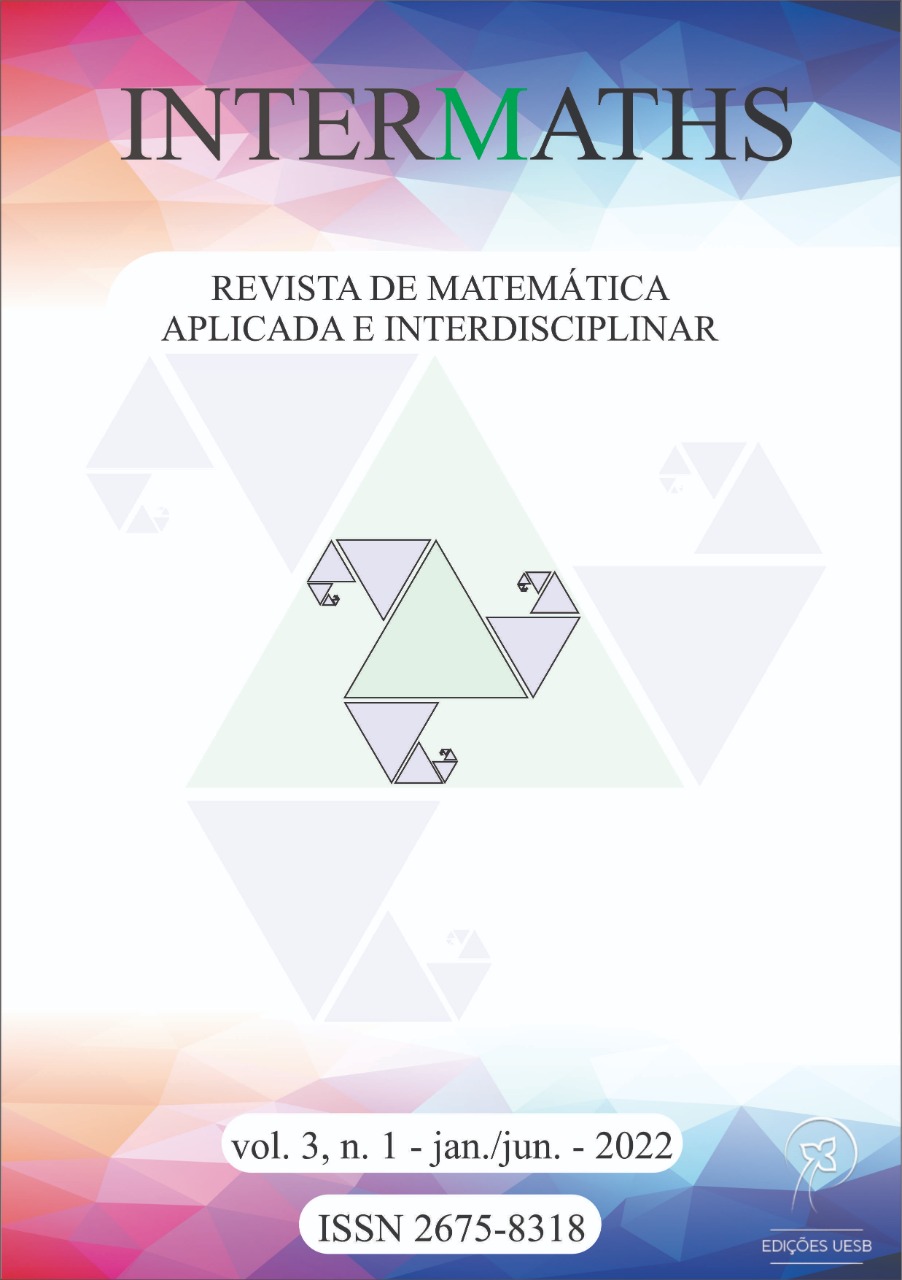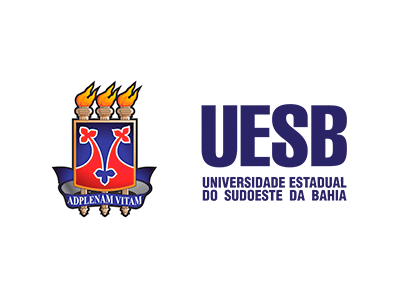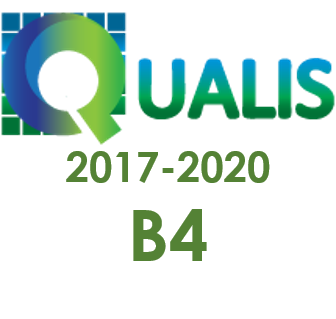Sobre o operador de fecho, um conceito que permeia muitos e distintos tópicos matemáticos
DOI:
https://doi.org/10.22481/intermaths.v3i1.10504Palavras-chave:
Operador de fecho, Estruturas matemáticas, Bases, GeradoresResumo
We present the closure operators and detach several distinct topics of mathematics in which we can observe the action of these closure operators. So, we can see these operators as a trans-topic concept. Considering that these mathematics theories can be applied to so many fields, then we enhance the closure operators as a transdisciplinary notion.
Downloads
Metrics
Referências
[1] AULL, C.E.; LOWEN, R. Handbook of the History of General Topology, 1, Kluwer Academic Publishers, Dordrecht, 1997.
[2] BELL, J. L.; MACHOVER, M. A course in mathematical logic. Amsterdam: North-Holland, 1977.
[3] BLOOM, S. L.; BROWN, D. J. Classical abstract logics, Dissertationes Mathemati-cae, v. 102, p. 43–52, 1973.
[4] BROWN, D. J.; SUSZKO, R. Abstract logics. Dissertationes Mathematicae, v. 102, p. 7–41, 1973.
[5] BURRIS, S.; SANKAPPANAVAR, H. P. A course in universal algebra. New York: Springer, 1981.
[6] CARNIELLI, W. A.; EPSTEIN, R. L. Computabilidade, funções computáveis, lógica e os fundamentos da matemática. São Paulo: Editora UNESP, 2006.
[7] CHURCH, A. A Note on the Entscheidungsproblem. Journal of Symbolic Logic, v. 1, p. 40-41, 1936a.
[8] CHURCH, A. An Unsolvable Problem of Elementary Number Theory. American Journal of Mathematics, v. 58, p, 345-363, 1936b.
[9] DEDEKIND, R. The nature and meaning of numbers (1888). In Essays on the Theo-ry of Numbers. English translation of “Was sind und was sollen die Zahlen?”, Vieweg, 1888.
[10] DIAS, M. F.; WEBER, L. Teoria da recursão. São Paulo: Ed. Unesp, 2010.
[11] FEITOSA, H. A.; NASCIMENTO, M. C.; SOARES, M. R. Models for the logic of Tarski consequence operator. In: Cezar A. Mortari (Org.). Tópicos de lógicas não clássicas. Florianópolis: NEL/UFSC, v. 1, p. 125-137, 2014.
[12] FEITOSA, H. A.; NASCIMENTO, M. C.; SILVESTRINI, L. H. C. Confrontando propriedades lógicas em um contexto de lógica universal. Cognitio, v. 15, n. 2, p. 1-16, 2014.
[13] HOPPMANN, A. G. Fecho e imersão. Rio Claro: Faculdade de Filosofia, Ciências e Letras de Rio Claro, 1973. (Tese de Doutoramento em Matemática).
[14] KURATOWSKI, K. Sur l’opération A de l’analysis situs. Fund. Math., n. 3, p. 182–199, 1922.
[15] LIMA, E. L. Álgebra linear. 7a. Ed. Rio de Janeiro: IMPA, 2006. (Coleção mate-mática universitária).
[16] LIMA, E. L. Elementos de topologia geral. Rio de Janeiro: Editora SBM, 2009. (Textos Universitários)
[17] MONTEIRO, A. Caractérisation de l'opération de fermeture par un seul axiome. Portugaliae mathematica, v. 4, n. 4, p. 158-160, 1945.
[18] MOORE, E. H. Introduction to a form of general analysis. New Haven Mathemati-cal Colloquium, Yale University Press, p. 1-150, 1910.
[19] MENDELSON, E. Introduction to mathematical logic. 3. ed. Monterey, CA: Wadsworth & Brooks/Cole Advanced Books & Software, 1987.
[20] NASCIMENTO, M. C.; FEITOSA, H. A. Estruturas Algébricas. São Paulo: Cultu-ra Acadêmica, 2013.
[21] PEANO, G. Arithmetices principia, nova methodo exposita. Bocca, Torino, 1889.
[22] POLLARD, S.; MARTIN, N. M. Closure spaces and logic. Norwell: Kluwer, 1996.
[23] SANTIAGO, R. H. N.; BEDREGAL, B. R. C.; ACIÓLY, B. M. Interval Repre-sentations, em “Seleta do XXVI CNMAC” (E.X.L. de Andrade et al., eds.), TEMA – Tendências em Matemática Aplicada e Computacional, v. 5, n. 2, p. 317- 326, SBMAC, 2004.
[24] TARSKI, A. Logic, semantics, metamathematics. 2nd. ed. J. Corcoran (Ed.). Indi-anapolis: Hackett Publishing Company, 1983.
[25] WÓJCICKI, R. Theory of logical calculi: basic theory of consequence operations. Dordrecht: Kluwer, 1988. (Synthese Library, v. 199).
Downloads
Publicado
Como Citar
Edição
Seção
Licença
Copyright (c) 2022 INTERMATHS

Este trabalho está licenciado sob uma licença Creative Commons Attribution 4.0 International License.
 All content of Revista INTERMATHS/Journal INTERMATHS is licensed under a Creative Commons - Atribuição 4.0 Internacional (CC-BY 4.0).
All content of Revista INTERMATHS/Journal INTERMATHS is licensed under a Creative Commons - Atribuição 4.0 Internacional (CC-BY 4.0).







